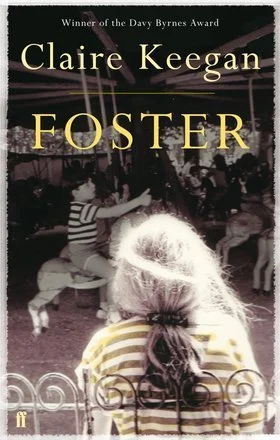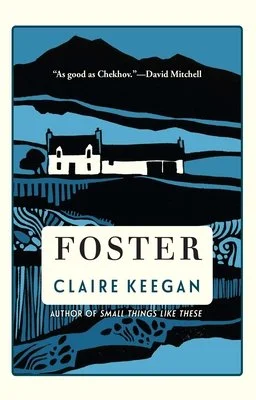Book Review - Foster - Claire Keegan
I watched the Oscar-nominated film 'An Cailín ciúin' (the quiet girl) over the Christmas period and loved it. It didn't come as a surprise when I learned it was based on a book called 'Foster' written by Claire Keegan, whose 'Small things like these' I had raved about back in 2021.
This was an earlier book released back in 2010 that I had heard about but it had vanished into my TBR pile, as my books sometimes do. I was happy to rescue it as I enjoyed the film and wanted to linger in that world for a little longer. And it’s as good a book as any to start my #tbryear10 challenge.
The Kinsellas
Although it could be set during any period, the brief mention of the hunger strikes places it in 1981. The young protagonist of the book, whose name we never learn, is sent to spend the summer with her mothers' people on a farm in Wexford, close to Gorey. We get the feeling that she is part of a large family and somewhat neglected. As she travels with her father, we begin to sense her anxiety.
She stays with John and Edna Kinsella, a husband and wife who as we begin to discover, are living with their own pain. But they make the girl welcome and she settles into the rhythms of life on the farm, helping in the kitchen and drawing water from the well.
Kindness
It's a book that is about the kindness of strangers, allowing others to grow when they are shown some love and attention. But the girl is as much a gift to the Kinsellas as she is to them. Keegan also gets the perspective of a child narrator spot on - she's naive in some ways, but emotionally intelligent in others.
“As soon as he takes it, I realise my father has never once held my hand, and some part of me wants Kinsella to let me go so I won’t have to feel this. It’s a hard feeling but as we walk along I begin to settle and let the difference between my life at home and the one I have here be.”
Dialogue
Keegan is so good at capturing the natural speech patterns in the small amount of dialogue that occurs. The descriptions of the rural landscape are lovingly detailed. There is such a wonderful mastery and economy of language on display. At times it feels like there's not much happening, but there's so much taking place just below the surface.
’‘You don’t ever have to say anything,’ he says. ‘Always remember that as a thing you need never do. Many’s the man lost much just because he missed a perfect opportunity to say nothing.’’
The previous reference to the hunger strikes, and the quote above, which made me think of the saying in the north 'whatever you say, say nothing,' reminded me too that an act of violence, or death, is never far away. There's a sense in the book of something that has happened or might happen. It's also a reminder to 'keep your mouth shut and be thought of as a fool than open it and remove any doubt.'
Novella
'My heart does not so much feel that it is in my chest as in my hands, and that I am carrying it along swiftly, as though I have become the messenger for what is going on inside of me'
The film builds slightly upon the book, with the character of Mr. Kinsella developed, but it remains true to the essence of the book and is all the better for featuring some dialogue as Gaeilge. The last scene in both the film and book really got me and I love the ambiguity of the final line.
It's hard to believe that this novella is 89 pages long, as it contains such rich characterisation, with a detailed and evocative setting. Keegan doesn't crowbar in the backstory and trusts the reader to be able to fill in the gaps. I've read books four times the length that didn't have near as much depth. There are so many layers to the writing and this is close to perfection.
89 pages
First Published February 10, 2010 by Faber & Faber
Book review - Foster by Claire Keegan
In the video below, Claire Keegan finishes with a reading from ‘Foster.’ She also talks about the art of subtraction in her writing; “There is only so much you say as a writer and then you must rely quite heavily on the reader and their own consciousness and their own mysteries and their own private lives to explore the mystery of what is not said within the given story. It's one of the glorious reasons why we read.”



